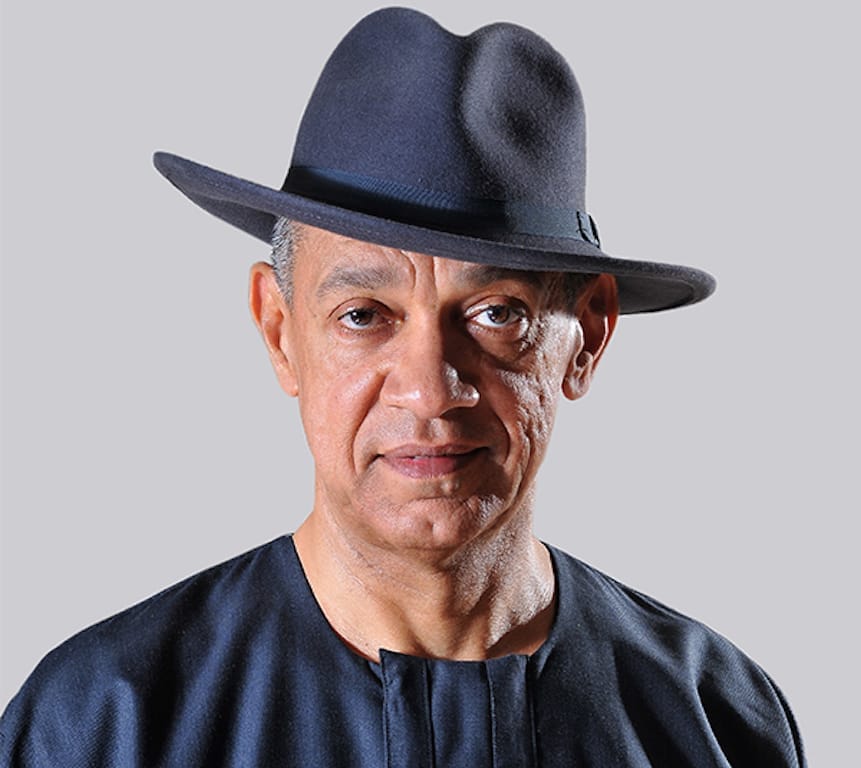Ben Murray-Bruce occupies a distinct position in Nigeria’s post-liberalization landscape, not as a celebrity businessman, but as a strategic player who helped define the architecture of modern media and entertainment.
Over the past four decades, his work has moved beyond commercial success, touching on policy advocacy, civic discourse, and regional investment in the creative economy.
ALSO READ: Ellen Johnson Sirleaf: A Leadership Legacy Defined by Resilience and Progress
While many public figures toggle between politics and business, few have managed to influence both spheres with the same long-term coherence.
Murray-Bruce’s record shows not just adaptability, but a deliberate push to institutionalize new industries in a challenging operating environment.
Media Infrastructure as Economic Positioning
When he launched Silverbird Productions in 1980, Nigeria’s media space was heavily centralized. What followed was a progressive build-up of private-sector platforms, from Rhythm 93.7 FM to Silverbird Television, West Africa’s first multiplex cinema, and an integrated real estate-media retail model.
The strategy wasn’t simply about broadcasting or box office numbers, it was about creating infrastructure that could support an entire ecosystem of content production, advertising, and cultural engagement. Silverbird became a testing ground for commercial formats that had no precedent in Nigeria at the time.
In 2022, the company secured a $145 million facility from Afreximbank to develop a film studio and academy within Eko Atlantic. The move aligns with growing investor interest in Africa’s creative industries and reinforces Silverbird’s shift from content delivery to capacity building.
ALSO READ: Don Jazzy: The Maestro Behind Africa’s Cultural Powerhouse
Navigating Political Space with Market Logic
Murray-Bruce’s entry into the Nigerian Senate in 2015 came with a clear agenda: bring private-sector logic into public-sector dysfunction.
While his legislative term was brief, his interventions around local manufacturing, fiscal prudence, and market-based reforms drew consistent national attention.
His decision not to seek re-election was framed not as a withdrawal, but as adherence to internal zoning agreements, underscoring a less transactional approach to political longevity.
His civic message outlasted his tenure, finding new channels through print, broadcast, and social platforms.
Rather than pursue partisan leverage, he has maintained a consistent presence in policy commentary, particularly around subsidy reform, economic nationalism, and Nigeria’s balance of trade. His advocacy often lands in the business community, not just political circles.
ALSO READ: The Wellingtons: Love, Legacy & The Art of Living With Purpose
Long-Term View of Creative Capital
The evolving structure of Silverbird today reflects a longer-term thesis: that the creative economy is not marginal but central to Africa’s next industrial chapter. Investments in distribution, real estate, training, and cross-border production suggest a shift from show business to sector strategy.
Murray-Bruce’s leadership style remains public-facing, but increasingly data-informed. His presence at global business forums, as well as institutions like Harvard and MIT, points to a broader effort to reframe African media, not just as cultural expression, but as infrastructure and export.
What began as a concert promotion outfit has grown into one of the continent’s most recognizable private media holdings. But perhaps more significantly, it has offered a working model of how creative capital can engage markets, influence policy, and shape national identity.
Ben Murray-Bruce’s story is not simply one of visibility, but of utility. In shaping Nigeria’s entertainment landscape, he has also helped redraw the boundaries between business influence and civic responsibility, delivering results that are as structural as they are symbolic.

